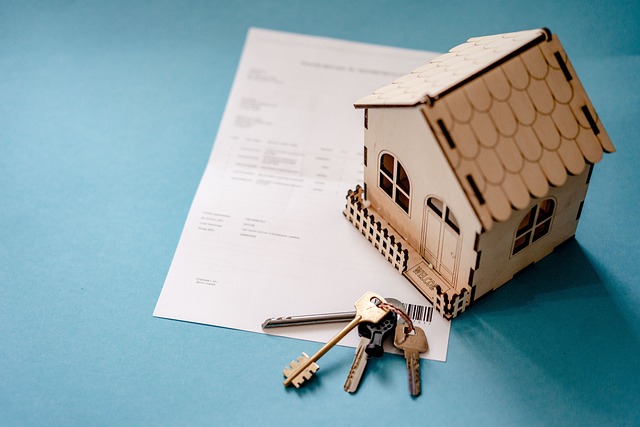Executive Condominium (EC) condo prices in Singapore have seen fluctuating trends influenced by a variety of factors including government policy, economic conditions, and market demand. Over the past years, ECs have gained popularity for their competitive pricing between private condominiums and HDB flats, offering a middle-ground option for singles and families. The price movements of ECs are impacted by interest rates, inflation, employment trends, and broader macroeconomic indicators, as well as the HDB's regulation of supply and types of ECs, which in turn affects affordability and desirability. Factors such as location, unit size, design, amenities, past sales trends, current demand, and the upcoming minimum occupation period (MOP) also significantly influence EC condo values. The condition, age, and proximity to key infrastructure like MRT stations or commercial hubs further affect pricing. Prospective buyers and investors should consider these multifaceted elements when assessing EC condo prices, as the market is both dynamic and sensitive to changes within Singapore's real estate environment.
Exploring the trajectory of Executive Condominium (EC) prices in Singapore reveals a nuanced market landscape. This article delves into the EC condo price trends, examining their evolution and the multifaceted factors that shape these dynamics. From government policies to economic indicators, various influencers contribute to pricing patterns within this unique segment of the housing market. Join us as we analyze the current state and predict future movements of EC condos in Singapore’s vibrant real estate sector.
- EC Condo Price Evolution in Singapore: An In-Depth Analysis
- Examining the Market Dynamics: Factors Influencing EC Condo Pricing in Singapore
EC Condo Price Evolution in Singapore: An In-Depth Analysis

The evolution of Executive Condominium (EC) prices in Singapore has been a subject of keen interest among property market observers and potential homeowners alike. Over recent years, EC condos have become an increasingly popular housing option for both singles and families due to their affordability compared to private condominiums and the benefits they offer, such as the possibility of upgrading to HDB flats after a minimum occupation period. The price trends of these units reflect a dynamic interplay between government policies, market demand, and economic conditions.
Analyzing historical data from various timeframes, it is evident that EC condo prices have exhibited both growth and volatility. Factors influencing these trends include the introduction of cooling measures by the Singapore government, which aim to prevent speculative buying and ensure a stable and sustainable property market. Additionally, the availability of loans, interest rates, and the overall economic climate have played significant roles in shaping EC condo prices. For instance, during periods of economic expansion, demand for EC condos typically rises, driving up prices. Conversely, during times of economic downturn or when cooling measures are tightened, price growth may slow or even reverse temporarily. Prospective buyers and investors are encouraged to monitor these trends closely, as the EC market can be both responsive to broader economic signals and influenced by specific policies targeting housing affordability and demand management.
Examining the Market Dynamics: Factors Influencing EC Condo Pricing in Singapore

In recent times, Executive Condominium (EC) pricing in Singapore has been subject to a myriad of influencing factors that shape market dynamics. These factors range from macroeconomic conditions to specific policies enacted by the government, all of which play a pivotal role in determining the prices of EC condos. The Housing & Development Board (HDB) plays an integral part in regulating the supply and types of ECs available, influencing affordability and desirability. Market sentiment is also influenced by broader economic trends, including interest rates, inflation, and employment figures, which can affect buyers’ purchasing power and investment confidence. Additionally, the location, amenities, size, and design of the EC condos contribute to their market value, with prime locations and well-designed units typically commanding higher prices. Developers also factor in past selling trends and current demand patterns when pricing new projects, making EC condo pricing a complex interplay of various elements.
The resale market for ECs is further impacted by the duration of minimum occupation period (MOP) that has lapsed since the initial purchase, with units nearing the end of their MOP potentially seeing an uptick in value as they transition into private property territory. The condition and age of the condo, as well as its proximity to infrastructure developments like Mass Rapid Transit (MRT) stations or commercial hubs, can also sway pricing. Investors and potential homeowners must consider these multifaceted elements when assessing EC condo prices in Singapore’s dynamic property market.
Over the past decade, the Executive Condominium (EC) market in Singapore has seen a dynamic shift in pricing trends, influenced by a myriad of economic and demographic factors. This comprehensive analysis has shed light on the evolution of EC condo prices, revealing patterns that reflect the nuanced interplay between market conditions and policy measures. Homebuyers looking to navigate this segment will find the insights gleaned here invaluable for informed decision-making. As the landscape of real estate continues to evolve in Singapore, staying abreast of these trends remains crucial for both current and prospective EC condo owners.
